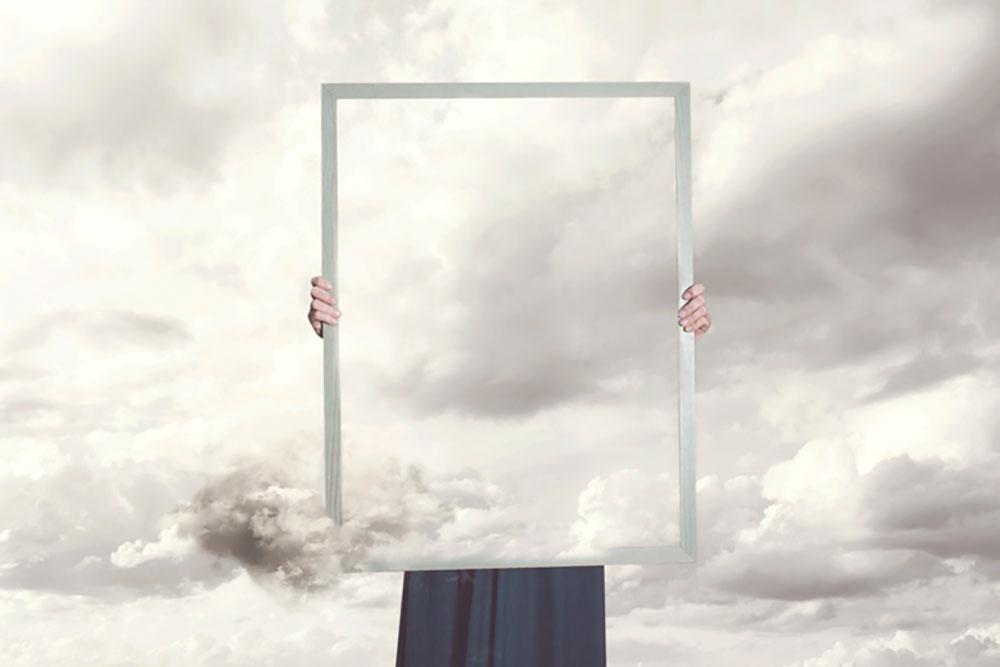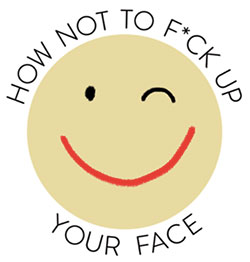
iStock
By Valerie Monroe
If you’re interested in feeling happier about your appearance—especially as you age—you might like reading what she has to say about it. For more of her philosophical and practical advice, subscribe for free to How Not to F*ck Up Your Face at valeriemonroe.substack.com.

Can’t get enough Valerie Monroe? There’s more at https://valeriemonroe.substack.com.
A FRIEND REMINDED me recently of the writer Philip Roth’s declaration, “Old age isn’t a battle. Old age is a massacre.” Diminishment after diminishment, loss after loss. If you’re old, or know someone who is, it’s not hard to see his point. (You may think I’m going to say, “But . . . ” here. I’m not.)
If you’re past a certain age, say, around your early 50s—which just happens to be the age at which most women hit menopause—you’ll have noticed you’ve suddenly become invisible. You’re not getting the attention or feedback you once did. For many of us, this is a huge relief. But it can also feel disturbing. Our currency as women is inextricably tied to our appearance and, on a deeper level, our reproductive status, whereas a man’s is tied to his provider/earner status—his ability to drag home a bison or to build a bank account. Of course, women are terrific earners and providers, too, but our hardwiring seems to be sadly frozen in the bison-dragging age.
When the currency we’ve used to get by—or ahead—in our youth-oriented and sexualized culture is no longer recognized and we get ignored, it can feel hurtful, even shameful. And it can unsurprisingly cause a crisis of confidence—which is why we need to learn to negotiate in a different currency. This isn’t at all to say we’re giving up on feeling attractive. But it does mean being present and engaged with ourselves and the world in a more active way.
I wrote the story below for O, The Oprah Magazine about the first time I noticed I wasn’t being noticed. I realize now it happened 12 years ago:
I’d spent an afternoon helping out an art dealer friend at a print fair. At a table in front of his display, I sat on one side of him while his assistant sat on the other; we greeted prospective buyers as they walked by. “Hi there!” I would say with warmth and (what I thought was) a touch of modest charm when I saw one coming. Time and again, from the men, I got a limp, dismissive “hi” in response, occasionally a nod. It wasn’t the Whistlers or the Chagalls that were diverting the art lovers’ attention; it was my friend’s lovely assistant. She wasn’t flashy or glamorous; but she had a smooth, milky, 20-something complexion and the sweet, expectant, wide-eyed look of youth. Thirty years ago, I might have been her.
Today, however, I’m 58 and I look it, by which I mean that I haven’t had any work done to make me appear younger. I’m trying to get down with the aging thing, to accept it—at least till I’ve decided that I can’t. Almost every morning I discover some other small reminder that I am growing older: an age spot, another wrinkle or wisp of gray in my (thinning) brows.
If you’re going through this, you already know that watching your face mature is not the most gratifying spectator sport—because no matter how constantly or enthusiastically you root for the home team, eventually age will win the game. Which is a good way to think about it, because the bottom line is that the process of aging involves a certain amount of loss. And what I discovered at that art fair is that if you have benefited from the currency of your looks, when that currency loses its value, you can end up feeling pretty bankrupt. Entering a room of mixed company—a meeting, a party—or walking down a crowded street, I’ve learned to expect that I’ll attract a little attention. I don’t mean that people stop in their tracks, open-mouthed, and stare (as they have when I’ve walked down the street with my 6’ 2”, striking young niece), but I’ve been banking on appreciative glances for a long time. They make me feel pretty, which makes me feel happy. Not in the way, certainly, that motherhood has made me happy, or my work, but there is a small feeling of satisfaction attached to receiving these looks; it’s as if, at least on the face of it, I know how to do this particular female thing well.
So I guess it shouldn’t have been shocking to me how difficult it was to be distinctly ignored. I hadn’t been aware that the glances I’d been accustomed to had been falling off. That afternoon, I felt as if I had been stripped of all color and was the only gray-and-white figure in a richly tinted painting. I was Marion Kerby, one of the ghosts in Topper, all dressed up and nowhere to.. . . . be seen.
Becoming invisible is disconcerting enough. But I am beginning to feel obsolete differently, too, maybe more profoundly. I’m almost embarrassed to admit how much I still miss the fundamental, quotidian tug of a child’s needs, the grounding responsibilities of parenthood. When I was actively child-rearing, my life had a purposefulness I grieve to this day. My son, at 25, now lives away from my home and is stunningly, happily independent. Which is exactly what I’d always aimed for in raising him, so I am deeply grateful. I just didn’t know that along with a joyful sense of accomplishment, I would feel, in some persistent, incontrovertible way, useless. Not pandemically useless; I work, I’m productive in the ways one has to be in order to fall into the category of functioning adult, but the comforting sense of knowing my purpose from the moment I open my eyes in the morning has been replaced with a kind of disquiet. I have, if I’m lucky, a third of my life left. How am I going to spend it so that I feel the fulfillment I felt in the previous third? What can I do that matters?
And here is where the issues of being ignored and feeling obsolete converge. The art fair men—unconsciously, surely—disregarded me in part because, no longer fertile, I’m unable to provide them with proof that they are still capable of reproducing. The emotional impact of having it so ungraciously pointed out that I have outlived my reproductive value was like having a bucket of cold water thrown at my face—or, rather, had a cold grave opened before me. Because that means, in a Darwinian sense at least, I’m over. The thing is, though my production line has shut down, the factory is still very much open. And I believe there is more work to be done before it closes for good.
The psychologist Erik Erikson suggests that there are many ways to express what he calls “generativity”—the need to produce something that contributes to the betterment of society, which not only helps others but makes us feel more content as we get older. That will be my focus as I march, largely invisible, into my future.
I can tell you this: Even if you don’t see me, you will know that I am here.
Rereading this 12 years later, I’m surprised that I often find myself oddly grateful for being the object of this vanishing act. In the last year and a half, as I’ve walked and walked in solitude, I’ve been deliberately relinquishing my self-consciousness, turning my focus outward, losing the passive yearning for attention and replacing it with an active awareness. There’s a beauty in this shift: The scenery, bleak or blossoming, becomes outrageously vivid, the romantic Mahler in my ears its heartbreaking soundtrack.
Who cares who’s looking at me? It’s what I’m looking at that matters. And that has never felt so grounding, profound, or so much like what the writer Ross Gay calls “an exercise in supreme attentiveness.”
I call it grace.

And this often coincides with retirement, another loss. Replacing a career requires a lot of planning to fill out one’s agenda with meaningful goalposts.
This is perfect.